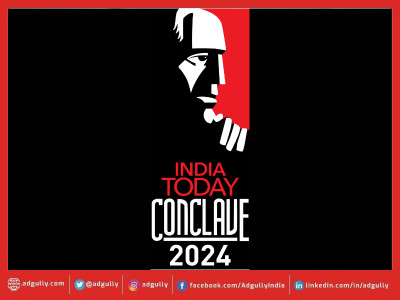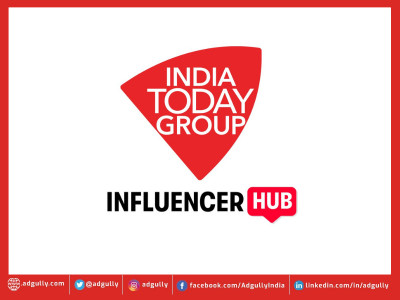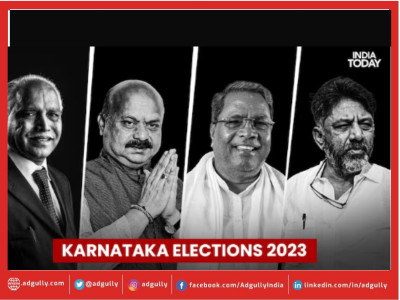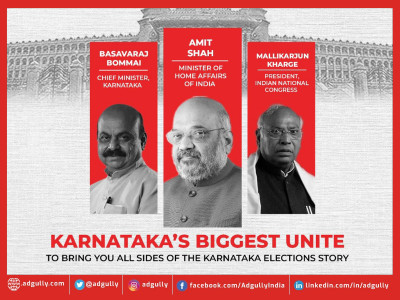You can change tech, not human emotion: Outlook's Maheshwar Peri
Adgully: What are some of the key milestones of your career?
Maheshwar Peri: The first milestone was crossed when we took on a publication like India Today, a publication that was well-established and firmly entrenched. One of the first things we had to do is to create our own mind space, helping people think beyond India Today. So we thought could we make a difference in terms of the product, so we made journalism come out of its cocoon. You won't find a publication in this country which would put a chief minister's picture and say "criminal'. But if a CM has been charged by a court as a criminal, we will call him a criminal. Further, we changed the pricing, we changed the periodicity; we changed the kind of paper used. When Outlook was launched, that itself was the biggest challenge, because we were very clear that based on the success of Outlook, we will be able to do anything else. So when I look at Outlook having a mastery over finance and travel, I know that we have attained reasonable success...but the story starts with Outlook. We changed the mindset of a country which was obsessed by one single magazine †and that is an achievement in itself.
AG: The current IRS study has been a dampener, so what do you think is the way out?
MP: Over the past three years, good magazine brands were launched and not a single publication has made its way into the IRS. So there has to be something wrong in it, obviously. They are making utmost efforts to make it correct, but still something is not happening the way it should. I would hate to believe that Vogue is not read or People, for example, that sells so many copies, is not read. What is the solution? I don't know, but these are things that I can see, and say that this is not fair. So we are looking at how we can talk about our other strengths while readership takes care of itself
AG: Readership is fragmented, what is your group doing to tackle that reality?
MP: It is wrong to say that readership are fragmented; it is fragmented when in one genre you have more than 20 or 30 magazines. When you have genres opening up, it's not about fragmentation, it's about people serving a specific need. And the market dynamics are such that only the top four players will survive. So the number of launches of new magazines doesn't signify fragmentation, it signifies that we are capable of catering to specific needs of the reader.
AG: Are magazines indifferent to the e-revolution?
MP: Despite all the talk about social media, the issue is that of compelling content. The question is: can this content transport itself from one medium to another seamlessly and will it still retain the similar level of interest. If people stop buying magazines in the printed form, fine, I will put the content somewhere else where it sells. You can change the technology, but you cannot change the human emotions or the connect. The interplay of emotions is what one is working on. So to that extent, as long as we keep delivering the content that readers want, how the content reaches them, how they read it, is of a lesser interest to me. What is in dispute now is the proportion of investment that you must make on different media platforms. So if 80% of my revenue comes from print, then I am going to put my interest here; and if 20% comes from digital, let's say I'll put 30% interest there. Besides, by the time I adopt a technology some new, better and enhanced technology will appear in the market.
AG: What key strengths drive your publications?
MP: It's a very simple answer, if you can tell the truth like it is, and people like you. If you try to twist the truth and change it, then people don't like you. One thing people know when they buy Outlook, or for that matter any of our other products, is that the story is not influenced, the story is not bought by anyone, the story is not trying to please anyone.
AG: How are you dealing with all the competition?
MP: That question can be answered by the editor of each publication. All our editors deal with the competition in their own genre. So it's about the editors who say that how can I place my product differently. Everyone maps out their own strategy. So when Forbes came in, we realised that they have better access, if they go to Laxmi Mittal he will open up to them. So we went to a small-town Indian entrepreneur who was not heard about but owned 20 Mercedes and 3 helicopters.
AG: Do you think the FDI cap in print media should be increased to bring more players?
MP: It has got nothing to do with players; it has got more to with freedom. It is about how we don't believe that our people will behave well if they have more money in their pockets. You can have a few hundred crores coming to me but it would not change me. So in a certain sense, we have to believe in ourselves. No one can tell us what to do and what not to do, because we are very strong even now. So I don't have a problem with FDI cap coming in. In fact in my opinion FDI should go up.
AG: What media trends will shape the future?
MP: iPad will be a game changer for us, because what will certainly happen is that we will be able to sell an Outlook across the world. So it's a marketplace in itself, in my opinion, where you will have multiple audiences coming in.
AG: Any new initiatives in the offing?
MP: This year is the 15th year of Outlook, so you will see a lot of activities from us on the parent brand, Outlook. You will see a bit of repositioning, and you will see a bit of rebranding in the months to come. Basically it's a problem any 15-year-old brand faces, how to retain your youth, while you still talk about being wiser and more mature. It's very important for brand to stay relevant to the changing times.
















Share
Facebook
YouTube
Tweet
Twitter
LinkedIn